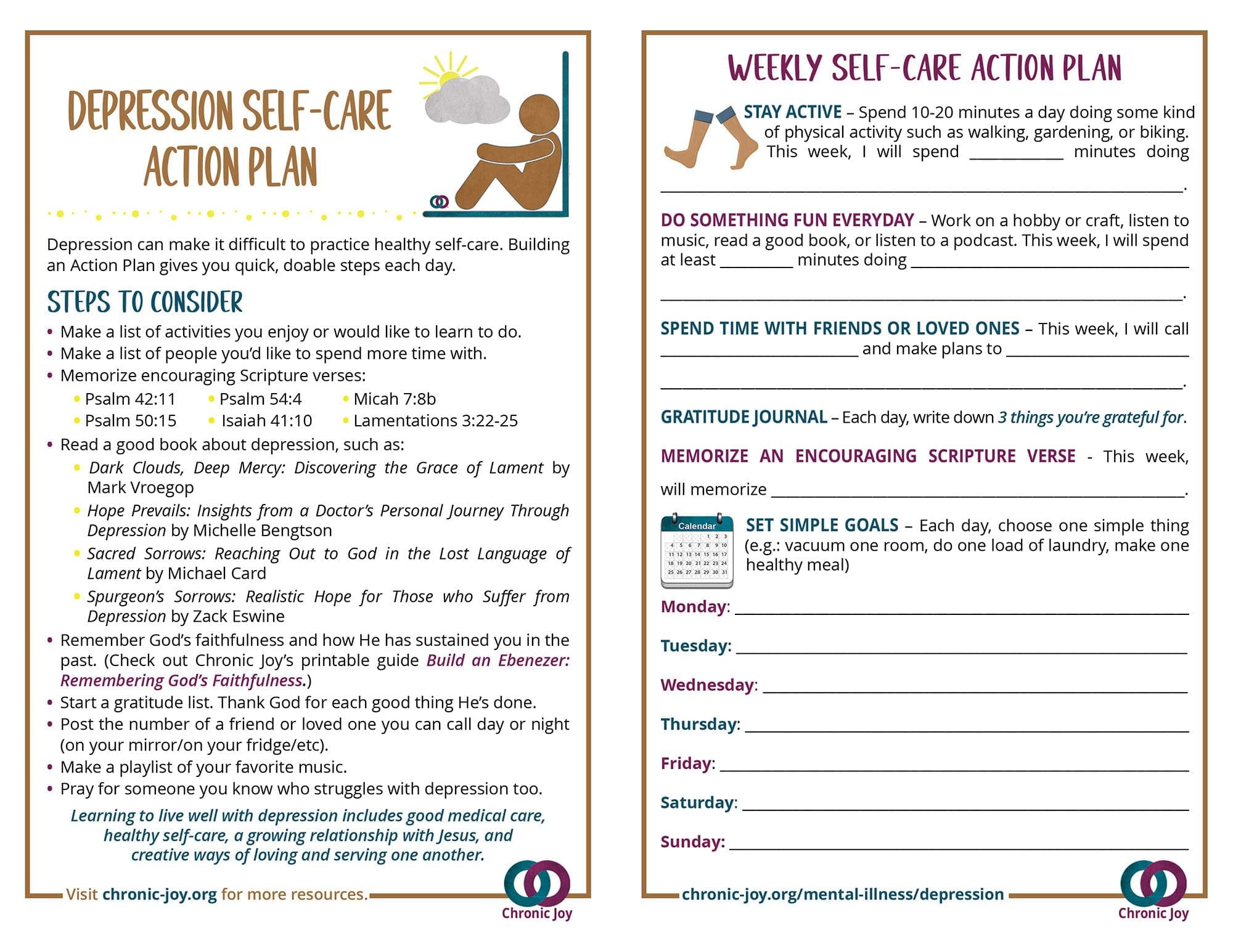He has told you, O man, what is good; and what does the Lord require of you but to do justice, and to love kindness, and to walk humbly with your God? (Micah 6:8)
LOVING THE DEPRESSED
Are you a Christian? Do you (or does someone you know) suffer from depression or anxiety? You know, those real illnesses – not the words batted around daily, making folks like me feel like we have no clue about what it actually means to deal with these illnesses day by day.
I’m talking about actual, diagnosable, honest illness. The kind of sickness that makes us unable to function like we usually do when we’re not sick. The kind of sickness that doesn’t mean we’re crazy or overreacting or too emotional as if we could control our mood if we just tried (or prayed) harder.
Here’s the rub about praying harder: some folks in the church still think there’s no such thing as mental illness. They believe that if you’re a true Christian (a mature Christian), you’ll just exude joy as a feeling and walk around smiling all (or at least most) of the time – unless you’ve lost a loved one by death or if you’re in some kind of physical pain. Even then, those who seem to be showered with praise in our churches most often are the stoic ones – those who either lack genuine human emotion or are excellent at stuffing it down. Then again, maybe I’m just one of those less-than-mediocre Christians who hasn’t risen high enough on the ladder toward sainthood.
All I know is that from time to time, I suffer when my medication stops working, and my neurotransmitter supply drops to the point where my brain screams, “HELP!”
STRUGGLING WITH ANXIETY AND DEPRESSION
You see, I’m nearly 60. I’ve struggled with depression and anxiety all my life. I managed my symptoms reasonably well with a healthy lifestyle and prayer until my mid-thirties when I had my first “breakdown.” No, I wasn’t hospitalized. Being a clinical psychologist, I realized I had become very sick and knew I needed medication, so I went to my general physician. Within two weeks, I had bounced back to my usual energetic, bubbly, smiley self – a far cry from the depths of darkness I had experienced just weeks before.
So, I know – firsthand. I know exactly how depression and anxiety feel. Secondhand, I’ve seen how bipolar illness devastates the sick as well as those who love them and try to care for them. My first husband developed bipolar illness in the first year of our seven-year marriage. I also became sick on that never-ending roller coaster ride of extreme ups and downs. Back then, we didn’t know enough about good treatment. Back then, we thought Christian counseling would do the trick. I’ve learned a lot since then.
A few years ago, our daughter (now 26, adopted from Russia when she was 6) had a breakdown – a complete psychotic break – that required 12 days in a locked psychiatric unit. Weighing in at 87 pounds (when her ideal body weight is 98 at five feet even), mania had worn her thin. Thankfully, medication restored her to a sound mind and a healthy body. Christian counseling would have been a complete disservice.
MENTAL ILLNESS IS NOT A LACK OF FAITH
I have had experiences with several people/families who rejected all forms of medical treatment and even excellent psychological counseling, thinking that Christians who have mental illness are just lacking in faith and should be set back on the right track by the more mature. I have heard a father staring at his teenage daughter, who was lying on the floor in a catatonic state due to severe depression, say, “Come on! Get up!” He told me he and his wife didn’t believe in medication or therapy.
Mental illness is not a lack of faith. We need to be loving the depressed with compassion.
So, what is the definition of mature as far as Christians are concerned?
I say the mature are those who follow Jesus Christ and seek his will over their own in all situations. I say the mature are those who love mercy, seek justice, and walk humbly with our Lord. (Micah 6:8)
TRUSTING THE LORD AND LOVING THE DEPRESSED
There’s so much I don’t know about the workings of the human mind and body. Therefore, I pray to be a woman of grace and mercy when dealing with those who are suffering: to do my best to help with everything I know, casting my fears and doubts aside, trusting in God to guide and provide with His perfect wisdom in His perfect way.
As for me and my house? God’s way has been providing effective medication, counseling, diligent prayer, and biblically guided living.
My first husband was a Christian. His life ended tragically by suicide.
My daughter and I are Christian. Our lives are rich, full, and healed because we know the power of using proper medication and counseling when needed. I hope the same for you and your loved ones.


Heather MacLaren Johnson
Psy.D. and Author
Heather and her husband, Todd, are parents of three adult children adopted from Russia with multiple invisible, permanent special needs. They live on 44 rural acres in Wisconsin. Heather's greatest desire is to help other chronic emotional sufferers understand that no matter how wounded, we are all passionately loved by God. She blogs at True Life with God and is the author of Grace, Truth & Time: Facilitating Small Groups that Thrive.

Depression Self-Care Action Plan
Depression can make it difficult to practice healthy self-care. Building an Action Plan gives you quick, doable steps each day.

Recent Comments